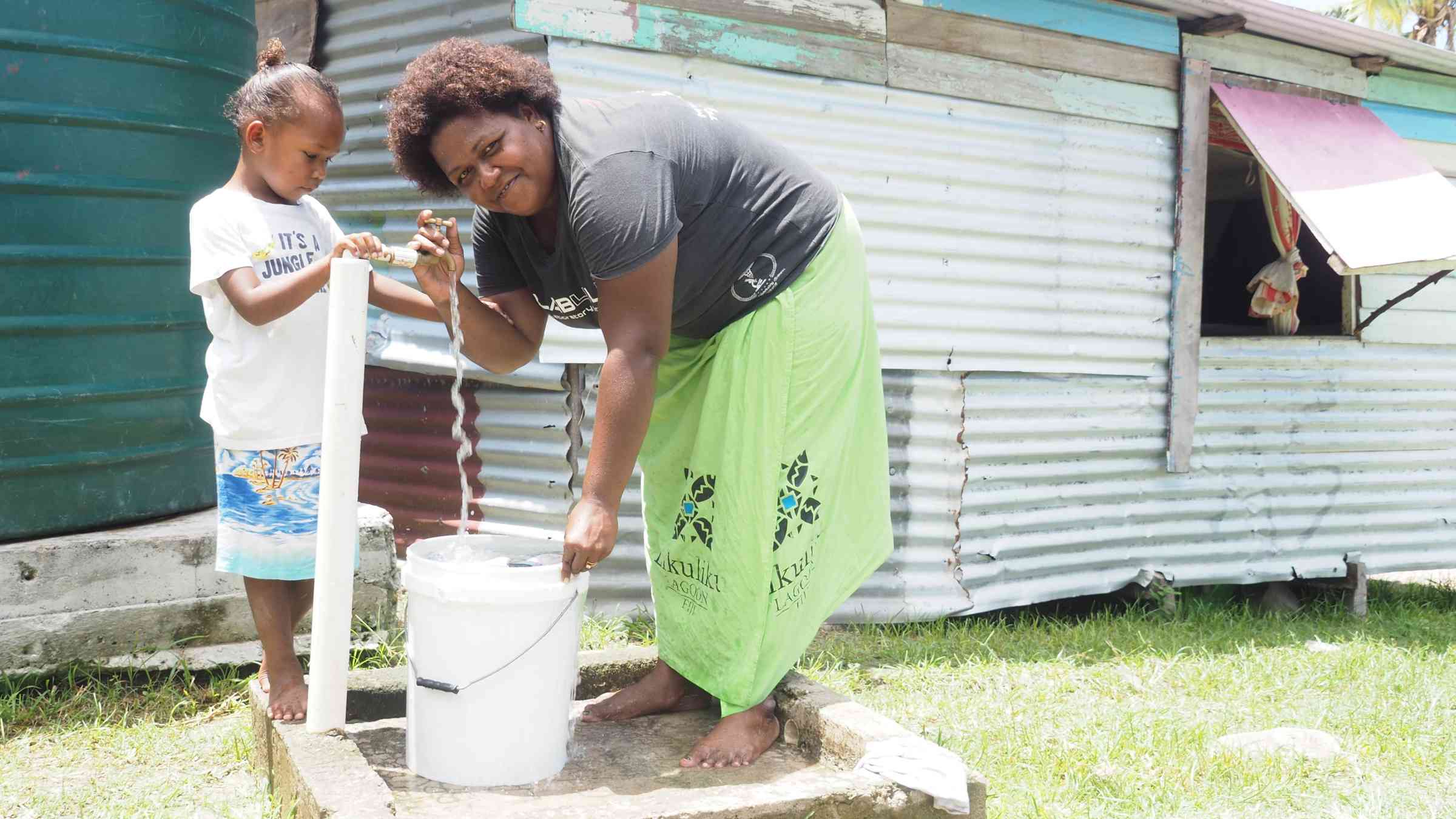The Critical Role of Water Security in Achieving Pacific Resilience: Too Much Water or Too Little Water
Water Security is a key determinant of resilience, critical to achieving the resilience of small islands developing states that continue to endure some of the lowest levels of access to safe water and sanitation of any region in the world and remain disproportionately impacted by the water-related impacts of disasters and climate change - including floods and drought that continued to impact the Sub-Region throughout 2023 and 2024. This learning lab will focus on the critical importance of water security as a key determinant of resilience through practical approaches such as increasing engagement on water security as a key determinant of resilience, sharing lessons from the Pacific on understanding flood early warning systems and sharing lessons from the Pacific Atoll Partnership on Drought Management Approaches that are critical to strengthening the role of Water Security in achieving Pacific Resilience. The learning lab will draw on lessons from the work of the Pacific Resilience Partnership Water Security Technical Working Group, the Pacific Atoll Water Security Partnership specifically the Managing Water Scarcity Through Strengthened Water Resources Management and from the Hydrology Support to enhance Flood Early Warning Systems in the Pacific.
Small Island States in the Pacific continue to endure some of the lowest levels of access to safe water, sanitation, and hygiene. Data from the 2023 Joint Monitoring Program shows that the Pacific as a region is off track to achieve universal access to basic drinking water, sanitation, and hygiene.
Whilst the Pacific is making progress, gains are not keeping pace with increasing population growths, recurring disasters, increasing climatic extreme events such as EL Nino and La Nina, severe tropical cyclones, flooding, and increasing salinity of fragile freshwater lens in small low-lying atolls and islands as a result of saltwater intrusion. The impacts of recurring disasters on the water security of small island states in the Pacific have been devastating with essential water, sanitation, and hygiene infrastructure, resources, and services destroyed, damaged, or disrupted. The impacts have been detrimental to human health, economic livelihoods, achieving gender outcomes, and maintaining the health and well-being of different ecosystems that are co-dependent on each other.
The Pacific as a region is committed to strengthening the water security of its communities and has taken innovative approaches to strengthen water security as a key determinant of resilience. This session will bring key lessons from some of these innovative approaches drawing on the work of the Pacific Resilience Partnership Water Security Technical Working Group in increasing engagement on water security as a critical determinant of resilience. It will also bring lessons from the Pacific Atoll Water Security Partnership highlighting the critical importance of partnerships in strengthening the capacity of countries to manage water scarcity in atolls and low-lying islands. The session will also draw on key lessons from the Hydrology Support to enhance flood early warning systems in the Pacific spotlighting the critical importance of flood early warning systems.
This session brings a wealth of technical and practical experiences from the Pacific islands on the critical importance of water security as a key determinant of resilience. It focuses on issues such as too much water or too little water and brings practical solutions to those issues drawing on the water security work implemented in the Pacific Islands by the Pacific Community (SPC), the Pacific Resilience Partnership, and development partners.
Speakers
1. Dave Hebblethwaite, Water Security and Water Governance Manager, SPC
2. Mary Alalo, Water Security Engagement Focal, SPC
3. Akmal Ali, Co-Chair, Pacific Resilience Partnership Water Security Technical Working Group
4. Annais Rouveyrol, Resilience Adviser, SPC
Learn more
There are significant and ongoing issues to address water security as a key determinant of resilience. Some of these issues include persisting low levels of engagement in water security compared to other sectoral issues, and inadequate consideration of water security issues in regional frameworks and decision making fora - particularly concerning consideration of water security as a critical component of disaster and climate resilience. While the significant economic, health, environmental, and resilience benefits of improved water, sanitation, and hygiene have been well demonstrated, the issue is yet to receive the levels of attention proportionate to both the scale of the challenge and its critical role in supporting Pacific resilience.
Whilst Pacific nations, development partners, and civil society are progressing water security across multiple fronts, a step change is required to these efforts to reach the high percentage of Pacific Islanders who live in remote and rural areas and are exposed to the serious health, social, and environmental impacts of unsafe water and sanitation facilities where water and sanitation is managed at a household or community level.
This session highlights some of these significant issues and calls for a step change towards elevating water security as a key determinant of resilience.

Agenda
Online access
Details
Organized by
Pacific Resilience Partnership (PRP) Pacific Community (SPC)Contact
Annais Rouveyrol, Resilience Adviser, SPC. Email - [email protected] and Mary Alalo, Water Security Engagement Focal, SPC. Email - [email protected]
